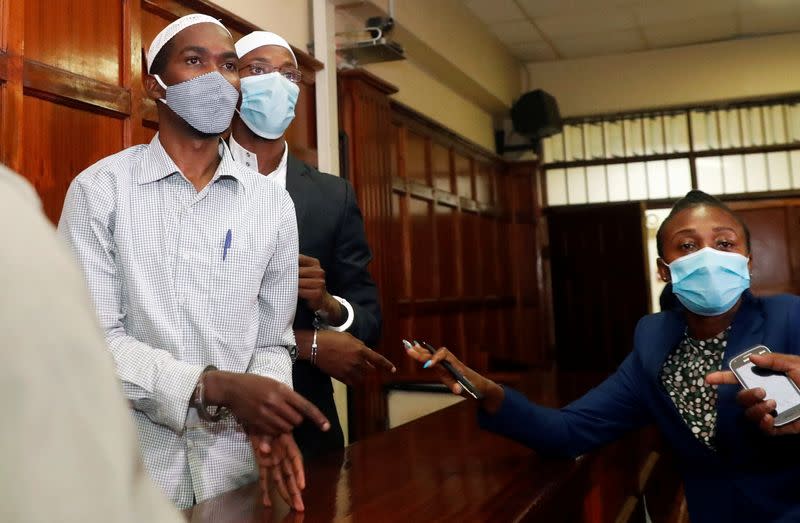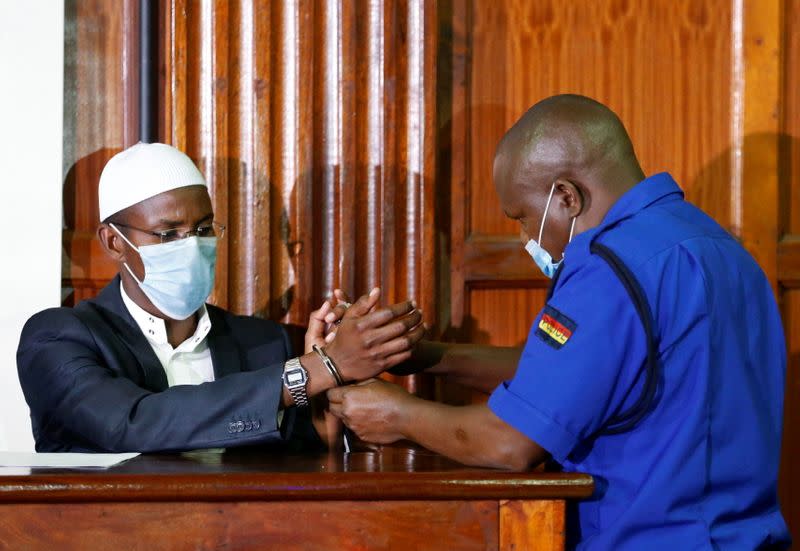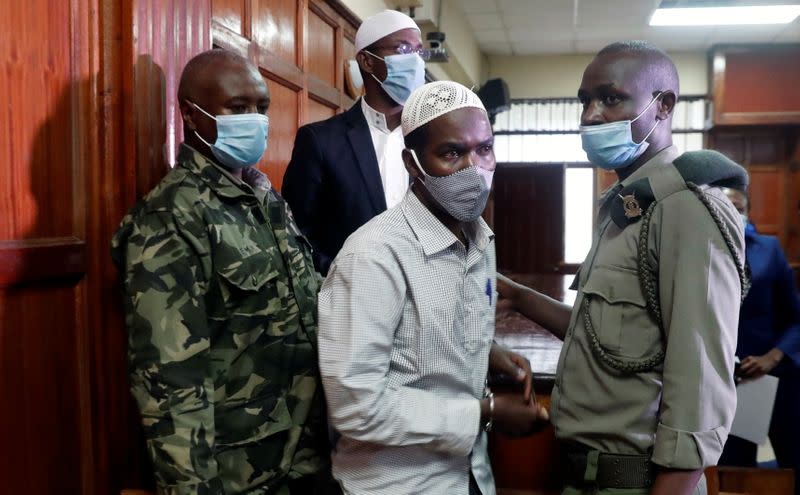Kenyan court jails two men for 2013 Westgate mall attack
By George Obulutsa
NAIROBI (Reuters) - A Kenyan court sentenced two men on Friday to 18 years in prison for helping gunmen from Islamist group al Shabaab storm Nairobi's Westgate shopping mall in a 2013 attack that killed 67 people.
Mohamed Ahmed Abdi and Hussein Hassan Mustafa are the only people convicted in relation to the four-day assault which showed the Somali militants could strike in one of the most secure areas of the Kenyan capital.
They were sentenced for 18 years apiece on each of two charges brought under a national terrorism prevention act, to be served concurrently. Abdi was given an additional 15-year jail sentence for possession of materials promoting terrorism.
"This court has to pass a sentence ... commensurate with the offence," Chief Magistrate Francis Andayi told the men as they stood in a Nairobi courtroom. He said the seven years they had spent on remand would be deducted from their sentences.
Andayi said they are allowed to appeal the sentences.
The attack on the upscale mall, a favourite of Kenya's growing middle class and foreign workers, happened two years after the East African nation sent troops into Somalia following a series of kidnappings and raids on Kenyan soil.
Four gunmen died during the attack and it has never been proved there were others who escaped.
A third defendant, Liban Abdullah Omar, was acquitted in the trial, which concluded on Oct. 7. He was abducted by a group of gunmen a day later after being released from custody and his whereabouts is still unknown.
The three defendants -- all ethnic Somalis, two of whom are Kenyan citizens -- were accused of assisting the attackers.
Kenyan authorities' disorganised response to the Westgate attack damaged the country's reputation.
Soldiers and police fired at each other during a chaotic four days and footage emerged of soldiers looting the complex as bodies lay sprawled on the bloodstained floors.
Loi Awat, a writer who was at the mall, told Reuters before sentencing the convictions were scant solace for those who died and survivors like her.
She and her two cousins were getting cash at a bank when the assault began and were trapped there for four hours amid sporadic gunfire before being rescued.
"What sentencing would you give somebody who has planned such a thing? I can't even fathom how you pay back that," Awat said. "What is justice for an atrocity?"
Al Qaeda-allied al Shabaab has staged further big attacks in Kenya, including a 2015 assault on Garissa University that killed 166 people and a 2019 attack on a Nairobi hotel and office complex that killed 21 people.
(Reporting by George Obulutsa; Additional reporting by Jackson Njehia; Editing by Elias Biryabarema and Catherine Evans)






